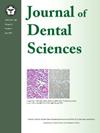The establishment of pulp polyp-derived mesenchymal stem cells with normal karyotype
IF 3.4
3区 医学
Q1 DENTISTRY, ORAL SURGERY & MEDICINE
引用次数: 0
Abstract
Background/Purpose
Pulp polyp is often eliminated as dental waste. Pulp polyp cells were reported to have high proliferation activity which might be comprised of stem cells. However, little has been known on the presence of stem cells in the pulp polyp. Moreover, pulp polyp cells might contain chromosomal abnormality. The present study was conducted to investigate the presence of pulp polyp stem cells, which could later be propagated and confirmed as normal/non-pathogenic cells using karyotype analysis.
Materials and methods
Collected pulp polyps were minced, enzymatically digested, and cultured. Expression of mesenchymal stem cell (MSC) markers on pulp polyp cells were analyzed using flow cytometry. Multilineage differentiation capacity was assessed by culturing the cells in osteogenic, chondrogenic, and adipogenic differentiation media. Genomic stability of the cells was evaluated with G-banded and molecular karyotype analyses.
Results
Pulp polyp cells appeared as fibroblasts-like cells. The cells were positive for cluster of differentiation (CD)105, CD90, and CD73, and negative for CD45, CD34, CD11b, CD19, and human leukocyte antigen (HLA)-DR. The cells were capable of osteogenic, chondrogenic, and adipogenic differentiation. G-banded karyotype analysis showed that there was no abnormality in the number or structure of chromosomes in pulp polyp-derived MSCs (PP-MSCs). Molecular karyotype analysis revealed that all copy number variations identified in PP-MSCs were not pathogenic.
Conclusion
PP-MSCs, which fulfill the minimal criteria for MSCs and are proven to have normal karyotype, have been successfully established. PP-MSCs might be a promising and safe candidate that can be considered for pulp-dentin complex regeneration.
正常核型髓息肉源性间充质干细胞的建立。
背景/目的:牙髓息肉通常作为牙齿废物被清除。据报道,牙髓息肉细胞具有较高的增殖活性,可能由干细胞组成。然而,对髓息肉中干细胞的存在所知甚少。此外,牙髓息肉细胞可能含有染色体异常。本研究的目的是研究髓息肉干细胞的存在,这些干细胞可以繁殖,并通过核型分析证实为正常/非致病细胞。材料和方法:将收集的果肉息肉切碎,酶解,培养。采用流式细胞术分析髓息肉细胞间充质干细胞(MSC)标记物的表达。通过在成骨、软骨和脂肪分化培养基中培养细胞来评估多系分化能力。用g带和分子核型分析评价细胞的基因组稳定性。结果:牙髓息肉细胞呈成纤维细胞样。细胞cd105、CD90和CD73阳性,CD45、CD34、CD11b、CD19和人白细胞抗原(HLA)-DR阴性。细胞具有成骨、成软骨和成脂肪的分化能力。g带核型分析显示,髓息肉源性间充质干细胞(PP-MSCs)染色体数目和结构未见异常。分子核型分析显示,在PP-MSCs中发现的所有拷贝数变异均不具有致病性。结论:成功建立了符合骨髓间充质干细胞最低标准且核型正常的PP-MSCs。PP-MSCs可能是一种有前途和安全的候选材料,可以考虑用于牙髓-牙本质复合体的再生。
本文章由计算机程序翻译,如有差异,请以英文原文为准。
求助全文
约1分钟内获得全文
求助全文
来源期刊

Journal of Dental Sciences
医学-牙科与口腔外科
CiteScore
5.10
自引率
14.30%
发文量
348
审稿时长
6 days
期刊介绍:
he Journal of Dental Sciences (JDS), published quarterly, is the official and open access publication of the Association for Dental Sciences of the Republic of China (ADS-ROC). The precedent journal of the JDS is the Chinese Dental Journal (CDJ) which had already been covered by MEDLINE in 1988. As the CDJ continued to prove its importance in the region, the ADS-ROC decided to move to the international community by publishing an English journal. Hence, the birth of the JDS in 2006. The JDS is indexed in the SCI Expanded since 2008. It is also indexed in Scopus, and EMCare, ScienceDirect, SIIC Data Bases.
The topics covered by the JDS include all fields of basic and clinical dentistry. Some manuscripts focusing on the study of certain endemic diseases such as dental caries and periodontal diseases in particular regions of any country as well as oral pre-cancers, oral cancers, and oral submucous fibrosis related to betel nut chewing habit are also considered for publication. Besides, the JDS also publishes articles about the efficacy of a new treatment modality on oral verrucous hyperplasia or early oral squamous cell carcinoma.
 求助内容:
求助内容: 应助结果提醒方式:
应助结果提醒方式:


